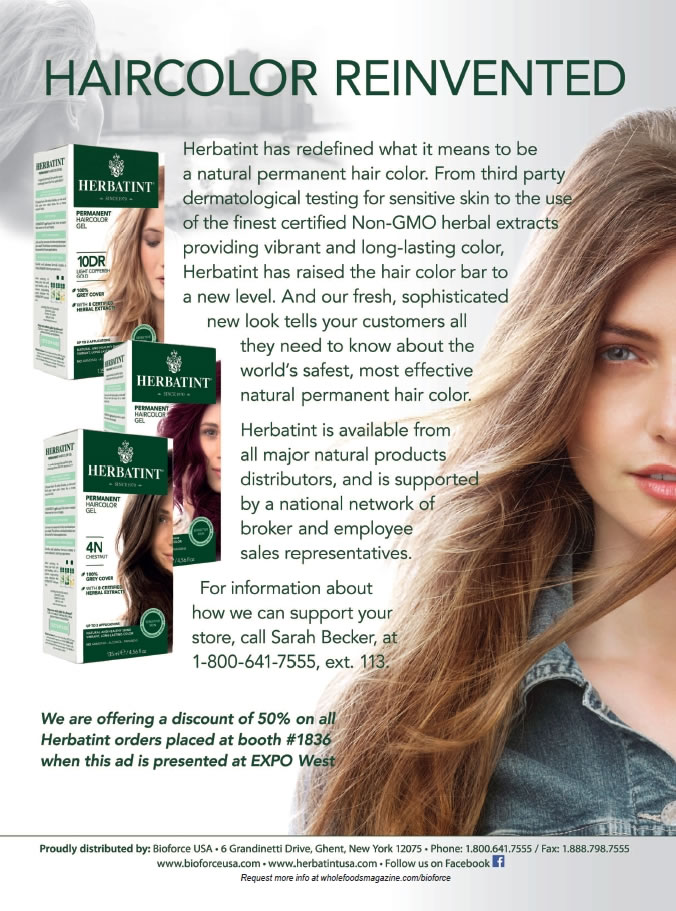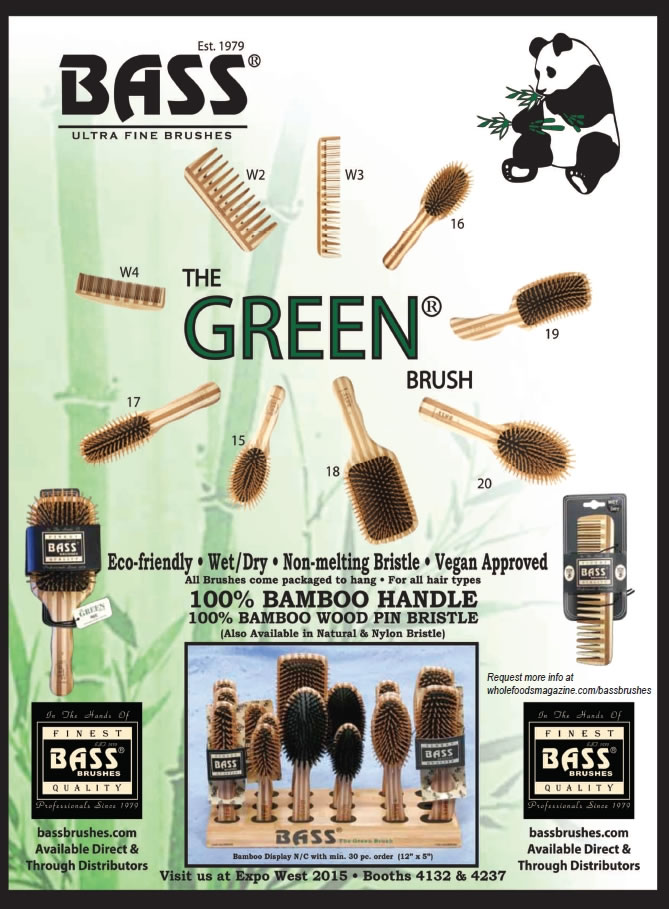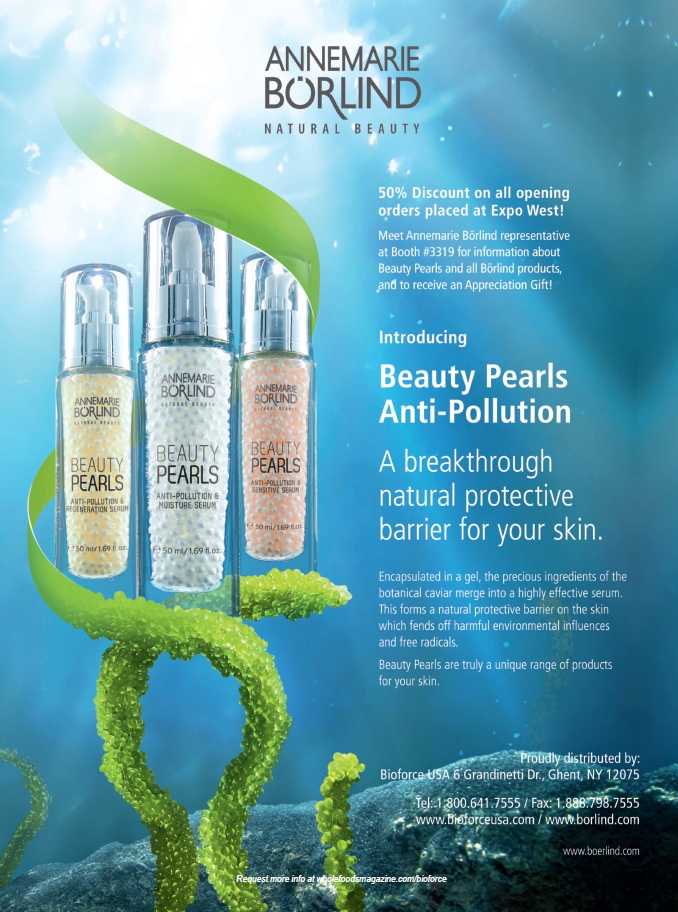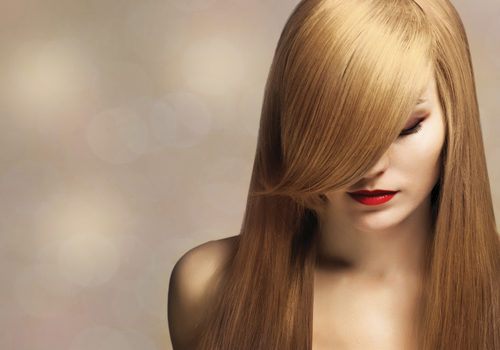Tell hair-conscious shoppers to try the “feel good” test. Ask them to run their fingers through their hair. Does their scalp feel hydrated and their hair soft and smooth? Do they love looking at their shining hair in the mirror? If shoppers aren’t quite there yet, perhaps they haven’t used what their hair really needs to be healthy: a blend of natural essential oils, proteins and vitamins.
Why Are Natural Hair Products Better?
Every time you use a non-natural shampoo or conditioner, you are potentially worsening the condition of your hair and making it drier, more fragile and lackluster. Regular shampoos found in conventional stores are filled with parabens, phthalates, sulfates, ethanolamines and more. But what are those chemicals and what do they actually do to your hair?
Parabens are preservatives that get absorbed  when applied to the skin and spread in the body. Some believe they potentially contribute to negative health effects such as skin rashes, allergic reactions and maybe more. Other chemicals used in non-natural hair products include synthetic perfumes that contain phthalates, which are also used in plastics to make them more flexible and harder to break, and sulfates, which are inexpensive, harsh detergents that can cause eye irritation, scalp scurf, skin reactions and other allergic reactions. They can also contribute to unwanted frizz and damage. And the list goes on with ethanolamines, DEA and TEA, which are used either as emulsifiers or foaming agents and can also cause allergic reactions (1–4).
when applied to the skin and spread in the body. Some believe they potentially contribute to negative health effects such as skin rashes, allergic reactions and maybe more. Other chemicals used in non-natural hair products include synthetic perfumes that contain phthalates, which are also used in plastics to make them more flexible and harder to break, and sulfates, which are inexpensive, harsh detergents that can cause eye irritation, scalp scurf, skin reactions and other allergic reactions. They can also contribute to unwanted frizz and damage. And the list goes on with ethanolamines, DEA and TEA, which are used either as emulsifiers or foaming agents and can also cause allergic reactions (1–4).
Consumers may be attracted to the promises of regular shampoo and conditioner, but all the chemicals filling these products are not risk free and can deteriorate the condition of your hair with every use.
What’s in Natural Hair Products?
Natural shampoos and conditioners offer blends of essential oils and other natural ingredients that nourish hair, proteins to make it stronger and vitamins to keep it healthy on a long-term basis. Here are some examples (5):
• Avocado oil is a source of vitamins A, D and E that adds shine to the hair. This oil is very  nourishing and hydrating to the scalp because of its easy absorption by the skin and scalp.
nourishing and hydrating to the scalp because of its easy absorption by the skin and scalp.
• Argan oil has risen in popularity because it adds shine and hydration to the hair cuticle.
• Tea tree oil is said to have germicidal, antiseptic and antibacterial properties. Although tea tree oil should be used in small amounts, it makes an “excellent addition to dandruff shampoos and therapeutic masks and moisturizers” (5).
• Jojoba oil acts as a moisturizer that strengthens and repairs your hair directly from the inside. It is very effective on dry skin and split ends, since it helps coat the hair shaft and lock in moisture.
• Aloe vera is well known to help with sunburns and skin irritations, but aloe also has the capacity to hydrate dry hair.
• Soy and vegetable proteins are great sources of essential amino acids and vitamins that act as excellent hydrators, are easily absorbed and improve the texture and strength of your hair.
• Coconut oil offers a unique combination of fatty acids that nourish and moisturize the skin, hair and scalp. Also, coconut oil can be applied directly onto hair as a conditioner.
• Biotin is often included in shampoos to maintain scalp health and support hair growth.
Shoppers may also want to consider natural hair styling brushes, some of which have boar bristles that can add shine, smoothness and volume. Look for brushes with handles made with natural woods and eco-friendly materials like bamboo.
Tell your shoppers to look for these and other natural ingredients in their hair care products—and steer clear of the synthetic stuff. WF
References
1. The Campaign for Safe Cosmetics, http://safecosmetics.org, accessed Dec. 31, 2014.
2. A. Mullens, “Parabens: What Are They, and Are They Really That Bad?” www.besthealthmag.ca/look-great/beauty/parabens-what-are-they-and-are-they-really-that-bad, accessed Dec. 31, 2014.
3. Centers for Disease Control and Prevention, “Phthalates Fact Sheet,” www.cdc.gov/biomonitoring/phthalates_factsheet.html, accessed Dec. 31, 2014.
4. “The Lathering Truth about Sulfates in Your Shampoo,” http://bestsaloninfredericksburgva.com/the-lathering-truth-about-sulfates-in-your-shampoo, accessed Jan. 5, 2015.
5. Aubrey Organic, Aubrey Dictionary of Common Terms.
Published in WholeFoods Magazine, February 2015









